Knowledge For Resilience in the Peace
The cross-commodity podcast series touches on our primary agricultural commodity players including grains, oilseeds, forage seed, forage, livestock and horticulture. Margins in agricultural businesses are often small. Adopting new farming practices can bring a costly learning curve. Having access to knowledge from researchers, experts and peers who have already walked the path of trying a new practice or technology, affords more producers the opportunity to adopt production practices they may not otherwise have implemented.
Episodes
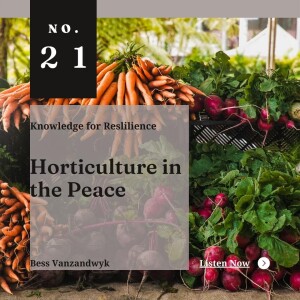
Wednesday Nov 23, 2022
Wednesday Nov 23, 2022
Today I sit down at the Kitchen table with Bess Vanzandwyk, a local force in horticultural production. A transplant to the Peace region herself, she has put down roots and is exploring how local communities can be more food secure with the growth of more local food producers.
Bess holds a Bachelor of Science in Biology and Environmental Studies. Bess and her husband Mike also started Hip Peace Produce in 2015, at the time located at Bear Flats, which unfortunately became the new flood zone for the Site C dam. During her time as a grower, Bess has planted over 100 varieties of vegetables, fruits and herbs. More recently, Bess and Mike along with their two children found a new farm home in the Rose Prairie area where they are working on building their permaculture property.
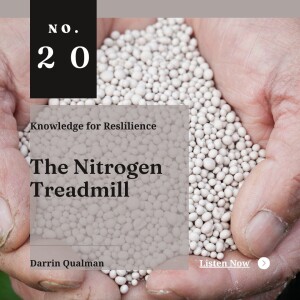
Tuesday Nov 22, 2022
Tuesday Nov 22, 2022
Darrin Qualman shares his thoughts and insights about how the Canadian farming community can manage their nitrogen use by gearing down the treadmill and at the end of day maybe even putting a few more dollars in their pockets rather than the input provider’s.
Darrin is Director of Climate Crisis Policy and Action for Canada’s National Farmers Union. He is a former farmer and the author of the 2019 report Tackling the Farm Crisis and the Climate Crisis and the 2019 book Civilization Critical: Energy, Food, Nature, and the Future. His research, writing, and educational pursuits over the past 25 years have all aimed at creating a long-term, big-picture view of food, farming, and energy systems. He is active in social justice and food system struggles and has helped organize many campaigns, including the successful struggle to prevent the introduction of genetically modified wheat into Canada. He has academic degrees in history, biology, and political studies.
National Farmers Union
https://www.nfu.ca
Nitrogen report
https://www.nfu.ca/publications/nitrogen-report-2022/
Imagine If…vision
https://www.nfu.ca/publications/imagine-if-a-vision-of-a-near-zero-emission-farm/
Civilization Critical by Darrin Qualman
https://fernwoodpublishing.ca/book/civilization-critical
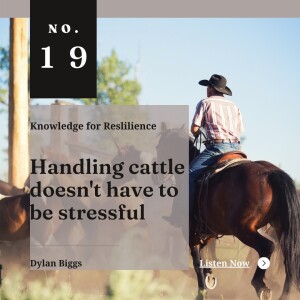
Monday Nov 07, 2022
Monday Nov 07, 2022
Dylan Biggs, along with his wife Colleen, own and operate TK Ranch which is located in the endangered Northern Fescue Grasslands of east-central Alberta. Dylan has an extensive background in ranching, holistic management, and cattle stockmanship, and provides sought-after workshops and training seminars on those topics.
TK Ranch
https://www.tkranch.com
Dylan Biggs Cattle Handling Clinics
http://dylanbiggs.com
Canadian Cowboy Magazine
https://cowboycountrymagazine.com
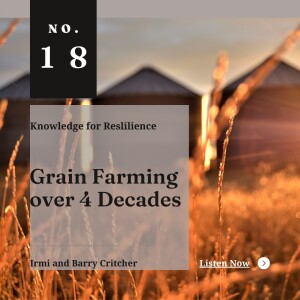
Monday Nov 07, 2022
Monday Nov 07, 2022
The Critcher family has been farming in the Peace River region near Taylor, BC since 1984. Together with their son Michael, daughter Jennifer and son-in-law Steve, Irmi and Barry have grown the family farm from when they started with 160 acres in 1984 up to 4,800 acres today. Critcher Farms grows grain and oilseed crops including wheat, barley, oats, canola, peas as well as grass seed and hay.
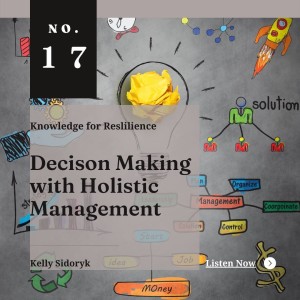
Friday Oct 28, 2022
Friday Oct 28, 2022
Today’s chat is with Kelly Sidoryk, a long-term rancher and holistic management practitioner. Maybe you have heard about Holistic management in passing, maybe it’s a new term for you and maybe you use holistic management on your operation all the time. Kelly will walk us through what holistic management is all about, a course coming up in the Peace region and how attending it can be perfect for those who would like to cross of the farm planning off the list but just never seem to get around to doing it.
Holistic management
https://holisticmanagement.org/the-regenerative-solution/
HM course in the Peace Region
https://peaceforage.bc.ca/event/holistic-management-training-6-day-course/
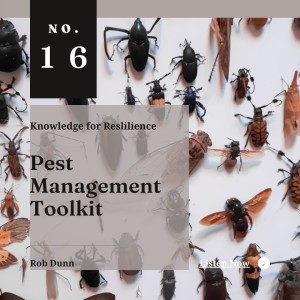
Friday Oct 28, 2022
Friday Oct 28, 2022
Today we are talking about integrated pest management with independent agrologist Rob Dunn. Rob will discuss his field approach of to help build soil and crop health, the importance of bees to your bottom line, and how beneficial insects can help tip the scale towards winning the battle against the bad guys. Rob iterates that it’s not about eliminating the use of pesticides but to reduce our dependency on them while also building a larger arsenal of tools that you can use for different pest and disease encounters.
Rob Dunn is a cropping systems specialist at Farm Wise based out of Lethbridge and a member of the Alberta Institute of Professional Agrologists.
Canola Council – Beneficial Insects
https://www.canolacouncil.org/canola-encyclopedia/insects/beneficial-insects/
Manitoba Agriculture – Beneficial insects
https://gov.mb.ca/agriculture/crops/insects/index.html
Bees and Canola
https://www.canolacouncil.org/about-canola/sustainability/bees/
Bee Connected App
http://www.beeconnected.ca
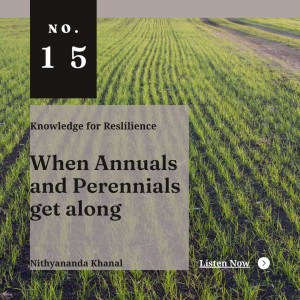
Friday Sep 02, 2022
Friday Sep 02, 2022
Forage seed production is a bit of a strange bird – neither is it an annual crop although it has components of it, like preparing a field for seeding similar to annual crop management, neither is it a true perennial crop although it has components of it – like leaving the same crop for 2-3 years.
Looking at how forage seed crops could integrate with annual crop rotations, is Nitya Kanal
Dr. Khanal can be reached by email nityananda.khanal@agr.gc.ca or by phone 780-354-4264.
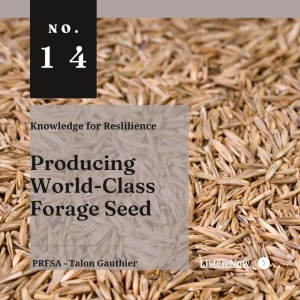
Sunday Jul 24, 2022
Sunday Jul 24, 2022
Did you know that the AB and BC Peace Region is one of the main forage and turf seed producing areas in the world? If you are growing forages or are admiring your lush lawn, chances are good that a Peace region grower was the source of that seed. Here to talk to us today is Talon Gauthier, general manager of the Peace Region Forage Seed Association. The forage seed association is unique in that it spans both the AB and BC Peace region, allowing it to represent producer interests across the region regardless of that pesky little line on the map.
Talon will share a bit more about her background and how she got started with the association as part of our chat. Talon and her husband also farm in the area, so she literally has boots on the ground when it comes to knowing the industry. If you missed previous episodes, you might also enjoy Episode 4 and 9, which Talon will refer to in our discussion . In episode 4, Keith Uloth was sharing details about the Pest monitoring program for forage and grain producers in the BC Peace region, while in episode 9 I talked to Calvin Yoder, who is filling the role of forage seed agronomist in the Peace region.
Peace Region Forage Seed Association
http://www.peaceforageseed.ca
Growth Regulators in Grass and Legume Seed Crops - Overview
http://www.peaceforageseed.ca/pdf/SeedHeads/SH_9_PGR_Overview.pdf
Fort St John Seed Cleaning Coop
https://fsjseedco-op.com
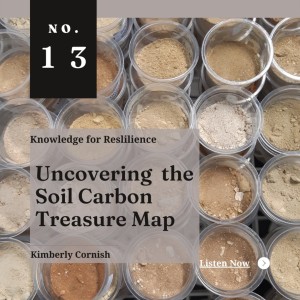
Thursday Jul 14, 2022
Thursday Jul 14, 2022
Soil carbon is probably one of the biggest current buzz words. Although it seems like everybody is talking about soil carbon, we still have a lot to learn about the movements of soil carbon and especially about the dynamics of soil carbon specific to the Peace.
One the people working hard to unearth the soil carbon treasure map of our regions is Kimberley Cornish with the Food, Water, Wellness Foundation. Kim and her team are using a process of using a combination of predictive soil mapping with existing soil information with on the ground 1m deep soil core sampling. A cool but labour intensive process which allows for soil carbon mapping across larger areas at an overall more affordable cost. A pending project hopes to map soil carbon across large areas in the Peace Region to help colour in the local soil carbon treasure map.
Learn more about Food, Water, Wellness Foundation
http://www.foodwaterwellness.org
Dig deeper on the soil carbon measuring approach
http://www.foodwaterwellness.org/soil-carbon-measurement.html
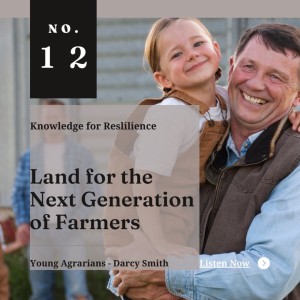
Saturday Jun 25, 2022
Saturday Jun 25, 2022
The BC Young Agrarians help to connect folks who have land available with farmers who are looking for that perfect parcel of land to farm or ranch. The Young Agrarians offer many services beyond their land matching program. Here to give us a behind the scene look is Darcy Smith. Darcy has spent the last decade working to support farmers and food systems. She lives and works on the unceded Musqueam, Squamish and Tsleil-Waututh territories.
As the first land Matcher in BC and now as BC land matching program manager, she’s worked with many new entrants, seasoned farmers and farmland holders across the province, who all share a vision to help the next generation of farmers get on the land and to see the land producing food into the future. Darcy also edits the BC Organic Grower, a quarterly magazine showcasing organic farming across B.C.
BC Land Matching Program page: https://youngagrarians.org/bc-land-matching-program
Non-Family Farm Transition Toolkit: https://youngagrarians.org/bc-transition-toolkit/
Peace Region land matching event onJuly 9: https://youngagrarians.org/july-9-2022-rose-prairie-bc-land-social-at-pure-pastures-regenerative-farm/
Other helpful Links and Contact Information:
morgan@youngagrarians.org
youngagrarians.org/land
youngagrarians.org/events
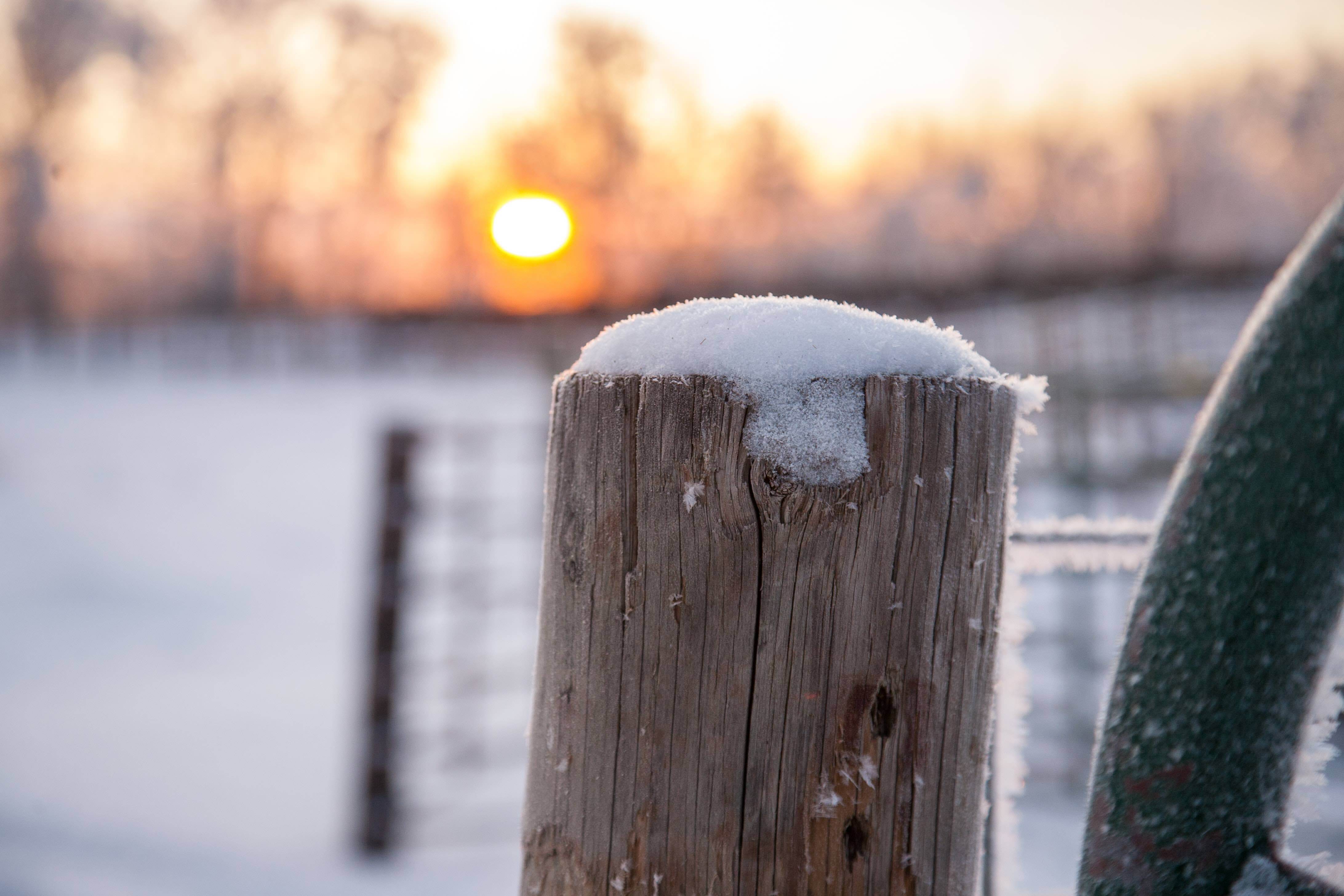
A Podcast for the Peace Region and Beyond
The Peace Region is rich in active producer and grower focused agricultural associations. To amalgamate our joint knowledge and foster cross-commodity collaboration towards our shared goal of building resilient and viable farming and ranching operations in the Peace Region, the Peace River Forage Association of BC (PRFA) is joining forces with the Peace Region Forage Seed Association (PRFSA), the BC Grain Producers Association and NEAT's Northern Cohort.
The project partner associations have a long standing history of bringing applied research, innovation and regionally adapted knowledge to a range of producers and growers. One limiting factor to move knowledge from research findings to farm applications, is the need for a bridge between the lab and the field. For example, if new research findings are published on reduced carbon emissions in no-till cropping systems, the information is likely first packaged in a scientific article. These articles are often locked behind paid journals and even if they are accessible, don’t make for the best bedtime reading material. Researchers on the other hand are busy proposing, implementing and analyzing their latest research, leaving little time and financial means to translate the scientific journal article into a format more easily consumable. Similarly, you may be curious about applied knowledge gathered by peers but may not have the opportunity to inquire for more details at the source. A podcast can offer a bridge between producers, specialists and researchers by packaging the information into a downloadable, on-the-go audio file.
Funding for this project has been provided by the BC Hydro Agricultural Compensation Fund.





